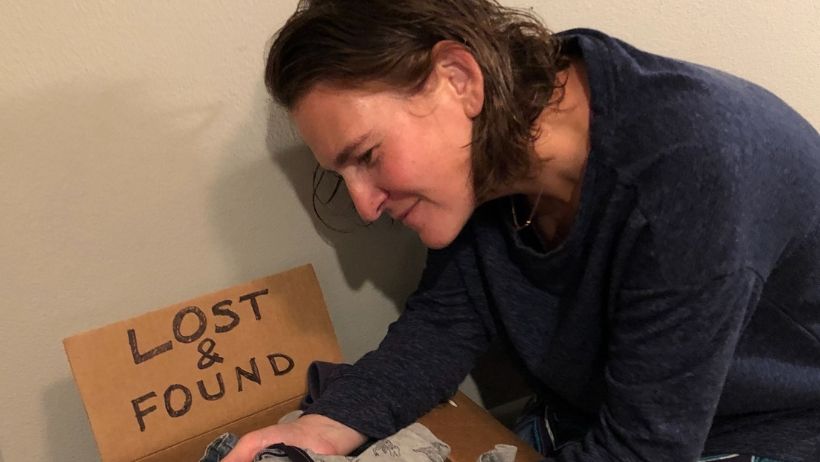As the parent of small children, I spend a ridiculous amount of time labeling their items. Shoes, hats, sunscreen, medications, lunch items, underpants, and socks all have names on them so that they won’t be lost at school. I have a whole new appreciation for my mother and the work that went into labeling my clothes when I went to summer camp. Of course for the most part, it’s not the end of the world if one of these items is lost. A majority of our material items are easy to replace. However, there are sentimental items that aren’t so easily replaced, and if something more valuable to us is lost, we hope and pray that someone, somehow might be able to return it to us.

The laws related to our concept of “finders keepers” are clear in our Torah portion this week, Ki Teitzei. We receive laws about war and taking care of hostages, laws about our clothing, laws about family relationships, including parents and children, laws about taking care of the poor, and so much more. Ki Teitzei is actually the Torah portion with the most number of mitzvot (commandments) in it, but the recurring theme is how we should execute and fulfill the mitzvot prescribed to us.
Chapter 22, verse 1 reads, “If you see your fellow’s ox or sheep gone astray, do not ignore it; you must take it back to your fellow.” The text continues listing every step you must take as the finder of an object to return it to the owner. The Talmud continues this line of thinking, reminding us to look for an identifying mark on every lost item we encounter and then do our best to return it to the owner.
This was the first piece of Talmud I learned in rabbinical school. It is called “Eilu Metziot.” These are the found things. We began by learning the intricacies of what items might be lost and what a sign must be. Then the Talmud takes a turn into the emotional nature of losing an object. There are actual discussions of how long it might take someone to give up on their search to find a lost item. These laws also remind the finder to do their best to find the item’s owner to return it.
Think about what a process finding and returning must have been back then. This was well before the time of social media and the ability to put out a post to hundreds (potentially millions) of people to find a lost dog, retrieve a stuffed animal from an airport, or return a wedding ring found on the beach. While most possessions are just “stuff,” some things are sentimental, and their loss can be profound. The Torah this week reminds us, among the intricacies of war and family life, that the responsibility to care for others extends well beyond tending to people’s physical needs. It also includes considering their emotional needs, regardless of the value that might be attached.



